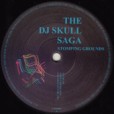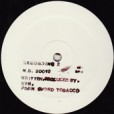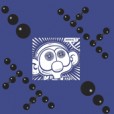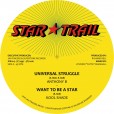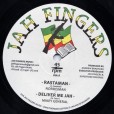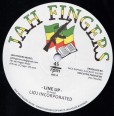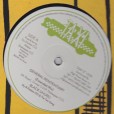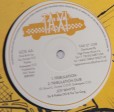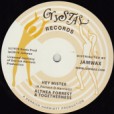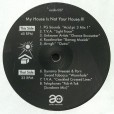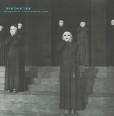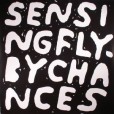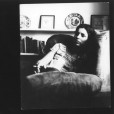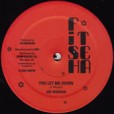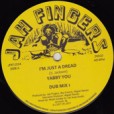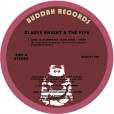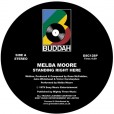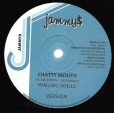Your basket is empty

The Nigerian percussionist together with US soul singer OC Tolbert, in 1982.
A grippingly odd couple of sides: Happiness is slow-burning gospel; Nwanne is terrific, stampeding Afro-disco, with popping bass, echoing shout-outs and drums on fire.
Sam Kidel from Young Echo opens proceedings with a beautifully rolling, pastoral re-arrangement of the melodies of South East Of The Mountain, keeping a watchful eye on the original, dread b-line. Then some chilled ragga from O$VMV$M, versioning Skeletal. Finally Helm takes the helm, with a startling re-animation of Bloom, brilliantly tipping the registers of Music For Airports on their side.
A re-rub of classic Digital Mystikz to celebrate Ancient Monarchy’s fifth release already, laced with oblique, Autechre-style melodiousness, and bass-bin armageddon. Next up, Sweet Sixteen is psychedelic techno-not-techno for early-morning dancefloors, complete with a sleazy EBM/New Beat dub by DJ October.
Fierily imperious roots from 1998, for Opera House. With Mikey General and a dub; and a show-stealing toast from label-boss Buccaneer.
Ishu and Xylon from Sound Iration, produced by Manasseh for Youth Sound in 1990. Quality digi UK steppers, with a nice melodica version, and a hollowed-out dub.
‘Berceuse Heroique back in the fray with the first of three twelves serenading sound system culture. An invocation of the long-lost spirits of pure, heavyweight, hardcore hedonism.
‘Border Control is a fight anthem against Brexit, fusing the industrial slant of Brummie techno with the jungle techno pressure of the early nineties. The Dillinja-esque bassline of Fortune Teller tolls the death knell for all tin pan speakers. Loose Cables is an uncanny ringer for one of Pinch’s most underrated tunes, The Attack Of The Killer Robot Spiders.
‘Pinch runs the voodoo down one more time. He sounds totally pissed off and more fresh than ever.’
Massive bounce to the ounce on the A-side, guaranteed to boing a dancefloor into a vibrational mess.
Four honed earhole sluicers, on the flip.
‘Recorded across East London, South-East Kent and Snaresbrook Crown Court during what is described as “the UK media’s attempt at divining integrity from the orchestrated turbulence of Brexit”, with the record setting out to “juggle the documentation of this particular moment with the desire to discern motivation from despair”. World In Action takes in field recordings, woodwind freakouts and percussion from Valentina Magaletti amongst other elements’ (The Quietus).
Bringing together two sevens originally released in Jamaica on the Afro Black label, in the mid-seventies. Rootical domestics, soulfully delivered, over tight, funky playing. You Let Me Down is Wackies’ sublime Black Harmony rhythm, no less.
Collectors’ heaven, utilising Joe ‘Basement Session’ Morgan’s own imprint Fish Tea, going since the 1980s.
Up from down under, following crucial releases on his own Body Language imprint, LJ shifts gears and steers his intricate sound-world — torn between house and ambient, with Larry Heard’s Alien LP coursing through — into deeper, more techno-infused waters.
Watch out for The Centre Of Time, evoking over its twenty minutes both the arctic vapour of Vletrmx21-vintage Autechre and the expansiveness of Vangelis in full flight.
Next-level stuff from Berceuse Heroique.
Crucial, ecstatic, magnificent disco, rinsed nowadays by the likes of Theo Parrish and DJ Harvey. Producer and writer Jerry Peter’s crowning ten minutes — notwithstanding credits with everyone from Foster Sylvers and Gene Harris to Aretha and Marvin.
Plus the mighty Bourgie Bourgie on the flip.
Superb disco boogie. A deeply soulful song, expertly sung. Killer, bare-bones break-downs, soaring strings, resplendent horns, with composers McFadden and Whitehead rocking the controls.
Plus an unmissable version of Curtis’ Make Me Believe In You! Fabulous, epic, Van McCoy drama, with a meaner Melba, thumping bass, and stomping kick-drum.

